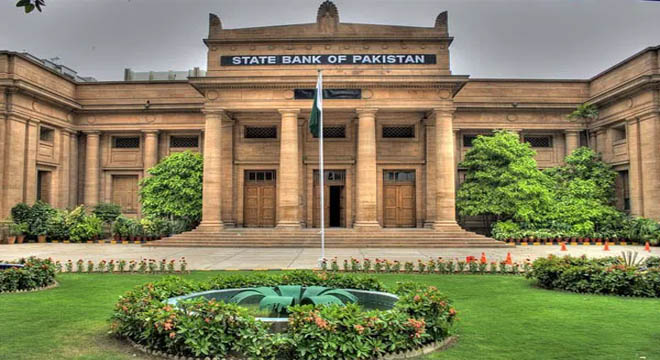ISLAMABAD, : The State Bank of Pakistan Wednesday said that despite elevated economic stress driven by the COVID-19 pandemic, the assets of the banking sector witnessed a decent expansion of 7.8 percent during the first half of the calendar year 2020 (H1CY20).
The central bank Wednesday issued the Mid-Year Performance Review (MPR) of the Banking Sector for the year 2020, which comprehensively covers the performance and soundness of the banking sector for the period January to June 2020 (H1CY20).
The MPR attributed the growth to the robust increase in investments, funded by surge in deposits, adding that advances, on the contrary, observed mild downtick owing to the economic slackness caused by the disruption in the business activities after the outbreak.
Sans SBP supportive measures, though, the contraction in advances could have been much higher, it said and highlighted that the policy measures rolled out by SBP facilitated the banking sector in conserving the capital, enhancing the lending capacity and increasing the loss absorption ability.
As a result, despite some increase in credit risk, banking sector demonstrated improved profitability and enhanced resilience.
The Non-performing loans (NPLs) ratio increased from 8.6 percent as of end December 2019 to 9.7 percent as of end June 2020. However, net NPLs to loans ratio, which is a better measure of credit risk, increased only marginally from 1.7% to 1.9%.
The earnings marked visible improvement as profitability jumped by 52% on year-on-year (YoY) basis, it said, adding this improvement resulted from higher interest income, deceleration in interest expenses and rise in non-interest income.
With better profitability, the soundness of the banking sector further strengthened as
Capital Adequacy Ratio (CAR) increased to 18.7 percent in June-20 from 17.0 percent in December 2019.
The review also includes the results of the 6th wave of SBP’s Systemic Risk Survey (SRS) conducted in July-August, 2020, which represents the views of the market participants.
The survey results indicate that—at present and for the next six months—the respondents consider global risks and domestic macroeconomic risks to be important.
Notably, the policy measures taken by SBP to mitigate the implications of COVID-19 have been very well received by the stakeholders.
Follow the PNI Facebook page for the latest news and updates.









